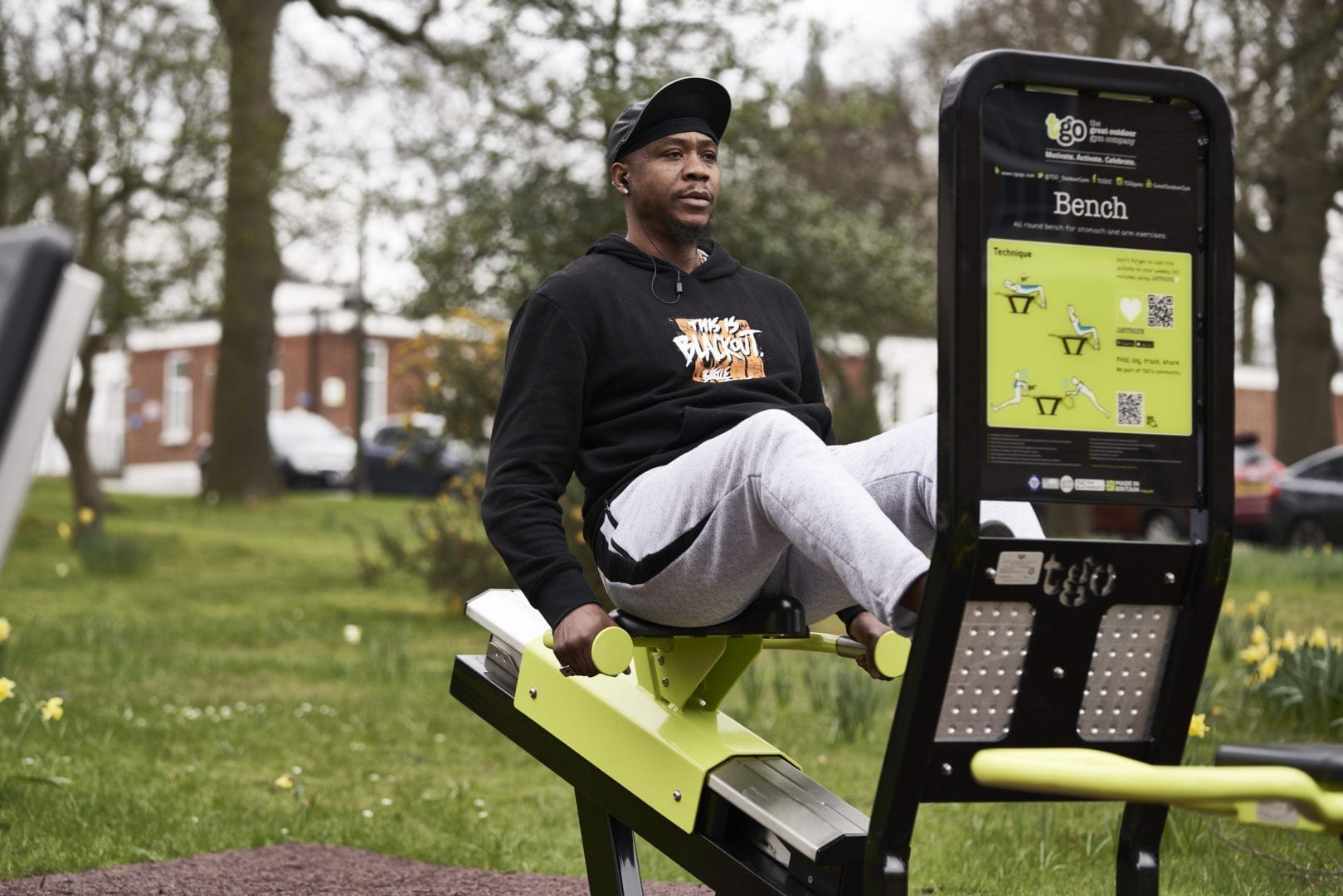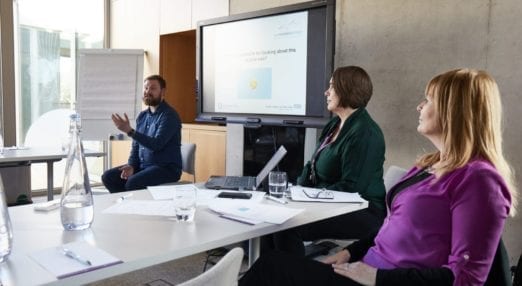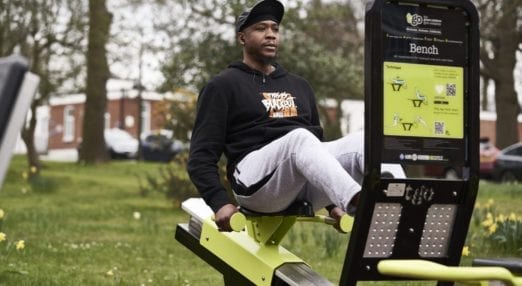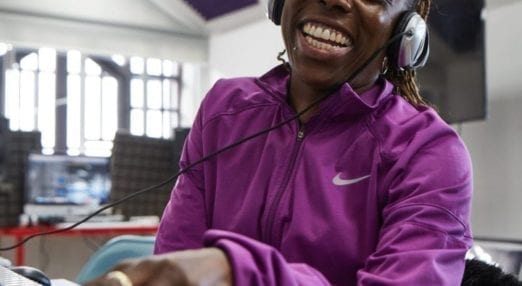Funded by the Maudsley Charity, the Cannabis Clinic is the first clinical service in the country offering young adults suffering from clinical psychosis the opportunity to receive support to reduce and/or stop their cannabis use.
Led by Dr Marta Di Forti, Consultant Psychiatrist from South London and Maudsley NHS Foundation Trust (SLaM) and King’s College London (KCL), the Cannabis Clinic brings together a number of proven interventions in a supportive, flexible and non-judgemental environment to help patients overcome their reliance on cannabis and reduce their incidences of psychosis.
The approach
Seventeen patients of those initially referred to the clinic by mental health teams across SLaM have now completed their intervention with the Cannabis Clinic. The majority had been using high potency cannabis every day, since their early teens, spending between £80 and £150 a week. After an initial assessment of their level of cannabis use, its impact on their cognitive function and their motivation to change, patients are invited to set goals both related to a reduction in the amount of cannabis they use as well as ambitions they want to fulfil.
Over a period of 15-20 weeks, patients attended weekly PEER groups and one-to-one meetings – first in person and then online after the start of the pandemic – and received daily text reminders of their goals. The sessions allowed them to report on and track their progress and participate in role play exercises that prepared them to deal with challenging scenarios, including peer pressure around cannabis use. A key aspect of the program is access to all available addiction strategies, promoting use reduction changes or cessation, adapted to the needs of people suffering from psychosis. One of these approaches includes personalised vouchers to reward their progress, which patients could spend in any way they wished.
Dr. Marta Di Forti observed “Cannabis use and especially frequent use of high potency cannabis is the single most modifiable factor that negatively affects the clinical and functional outcome of young people who suffer from psychosis. The initial work of the Cannabis clinic has shown that combining established interventions from addiction and skills in engaging young people with psychosis can succeed in supporting young people with psychosis to reduce/stop their cannabis use and change for the better their clinical outcome.”
Positive changes
As the two-year project nears its close, there is every indication that the approach has had a positive impact on the lives of this first cohort of patients. The majority stopped their cannabis use and those who continued significantly reduced to less than weekly use. All of them reported a significant reduction in their paranoia, and improvement in cognitive function and more importantly a reduction in their self-isolation that often comes with the psychosis. These positive changes have also been supported by a qualitative evaluation that has collected feedback on the Cannabis Clinic from the referring mental health teams, from parents and other family members who noted positive changes in their loved ones.
My mum’s dying wish was that I’d stop smoking weed because she wasn’t going to be around to help me. And the children, it had been a long time coming for them. They’ve never known any different and if I didn’t stop then, the likelihood of them picking up a joint would have been quite high. It’s a lot better. I’m not waking up and just smoking joints. I’m more present. We’ve been doing things together more. There’s no paranoia. We’re a lot happier.
New routines, new opportunities
Reducing or eliminating high potency cannabis use has helped patients to reconnect with friends and re-engage with education and employment. Patients were offered opportunities to participate in organised arts and wellness activities several of which are also supported by Maudsley Charity including Raw Sounds, Recovery College and South London and Maudsley NHS Volunteering program.
The vouchers also proved effective in their recovery, with one service user purchasing a laptop to enable their return to education, while another bought books, finally able to concentrate after years of struggling to hold their focus. Others bought video games and gardening supplies in support of new hobbies taken up since giving up cannabis use.
It [cannabis] was really setting me back. I bought 30 books. I was able to read more. Stopping using cannabis is the best thing I’ve ever done. It was a little easier than I thought it would be and I couldn’t have done it without the Cannabis Clinic.
Expanding clinic reach
Buoyed by the success of the initial clinic, Dr Di Marti hopes to continue the project beyond this initial phase. Supported by additional funding from the Maudsley Charity her team is expanding the PEER group and working with Maudsley Learning to develop an e-learning package. Focus will also be placed on preventing relapse by those who have already given up cannabis who need support to stay on track.
Dr Di Marti says, “This could not have happened without the generosity of Maudsley Charity and the support of SLaM dual diagnosis team. The PEER group experience has been an extraordinary learning experience for me as a clinician and as an academic. I hope that the Cannabis Clinic can also become a training hub where clinicians like myself can learn not only how to offer better treatment for heavy cannabis use, but more importantly to listen to the role cannabis use has in people’s lives and how difficult often it is to move away from it.”
“I wish for the Cannabis Clinic to become a service that sees clinicians working alongside PEER mentors and young people with lived experience of psychosis and cannabis use. I truly hope that we can secure the NHS support and the funding needed to continue the work we began with the Cannabis Clinic.”
Find out more at the Cannabis Clinic
Visit the South London and Maudsley NHS Foundation Trust Cannabis Clinic for Patients with Psychosis for more information on the support they offer.
Please note that Maudsley Charity does not provide direct clinical care, these services are provided by South London and Maudsley NHS Foundation Trust. For advice and information, including how to access clinical services please call 0800 731 2864.
Support mental health care
With your help we can support more world-class research and clinical care that will transform the mental health of young adults suffering from clinical psychosis
Donate
Suggested reading
-

Recovery College
Staff and peer recovery workers deliver collaborative training to gain valuable insights into mental healthcare
Read more
-

Bethlem outdoor gym
Improving physical and mental health for patients, staff and local residents at Bethlem Royal Hospital
Read more
-

Raw Sounds
Bringing therapeutic music and media education to inpatients and the community
Read more
